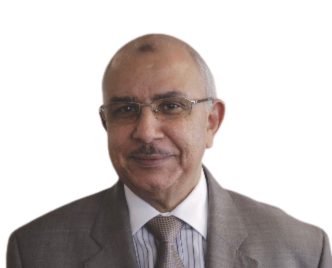About IFSB
The Islamic Financial Services Board (IFSB) is an international organisation committed to promoting the soundness and stability of the Islamic financial services industry (IFSI) by developing international standards for the regulation and supervision of the IFSI, supporting the adoption and consistent implementation of standards and sound industry development through capacity building and technical assistance, and monitoring financial stability and identifying current and emerging risks to the IFSI.
Established in 2003 and headquartered in Kuala Lumpur, Malaysia, the IFSB works closely with other international organisations, regulatory and supervisory authorities, and regional partners, aligning its efforts with global standards towards the sustainable growth and development of Islamic finance, and serves as a platform for cooperation and knowledge sharing among its members.

IFSB OFFICE
- VISION
- MISSION
- CORE VALUES
- OBJECTIVES
- MOTTO
To be the primary global standard for Micro- and Macroprudential Islamic Financial Services Industry
The mission of the IFSB is to mainstream Islamic finance and to promote the stability and resilience of the Islamic financial services industry, through issuance, and facilitating the implementation, of global prudential standards and other initiatives that foster knowledge sharing and cooperation.
A set of core values drives the operations of the IFSB. These core values are universal and apply in all aspects of its operations. They are seen as crucial in the running of the IFSB’s operations, as the IFSB deals with a range of members and beneficiaries from many countries and environmental settings.
Take responsibility for actions that influence credibility
Collaborate within and outside the IFSB to deliver quality international prudential standards for the Islamic financial services industry
Be responsive to the needs of those we serve
Act with honesty and integrity through a common set of values
To promote the development of a prudent and transparent Islamic financial services industry through introducing new, or adapting existing, international standards consistent with Sharî’ah principles, and recommending these for adoption
To provide guidance on the effective supervision and regulation of institutions offering Islamic financial products and to develop for the Islamic financial services industry the criteria for identifying, measuring, managing and disclosing risks, taking into account international standards for valuation, income and expense calculation, and disclosure.
To liaise and cooperate with relevant organisations currently setting standards for the stability and the soundness of the international monetary and financial systems and those of the member countries.
To enhance and coordinate initiatives to develop instruments and procedures for efficient operations and risk management.
To encourage cooperation amongst member countries in developing the Islamic financial services industry.
To facilitate training and personnel development in skills in areas relevant to the effective regulation of the Islamic financial services industry and related markets.
To undertake research into, and publish studies and surveys on, the Islamic financial services industry.
To establish a database of Islamic banks, financial institutions and industry experts.
Any other objectives which the General Assembly of the IFSB may agree from time to time.
Mainstreaming Islamic finance

Milestone
May 2002
IMF announced the IFSB
November 2002
Inaugurated in Kuala Lumpur
March 2003
IFSB commenced its operation
May 2004
Inauguration of the first IFSB Global Summit
December 2004
Grew to 65 members from the nine Founding Members
December 2005
IFSB issued the first two prudential standards for the Islamic financial services industry
December 2006
Admitted securities and insurance regulatory authorities into the membership, bringing the membership number to 110
March 2007
IFSB-IRTI-IsDB jointly published the IFSI Development: Ten-Year Framework and Strategies
November 2007
Facilitating the Implementation of IFSB Standards (FIS) workshop series started
December 2010
The Islamic Financial Stability Forum (IFSF) was initiated as a platform for IFSI issues deliberation
December 2011
The first Strategic Performance Plan (SPP) approved by the Council, guiding IFSB’s stakeholders’ engagements
May 2013
The inauguration of the IFSB’s yearly flagship publication, the Islamic Financial Services Industry Stability Report
January 2015
IFSB launched the Arabic version of the website
May 2015
Islamic Finance for Asia: Development, Prospects, and Inclusive Growth publication launched at the ADB Annual Meeting 2015
September 2016
Hosted the High-Level Seminar on Islamic Finance with the World Bank in Washington D.C.
May 2018
The IMF endorsed and adopted an IFSB Standard - the IFSB-17: Core Principles on Islamic Finance Regulation for the Banking Sector
March 2019
The establishment of the IFSB Executive Committee within the Governance Structure
December 2019
The SCSI of the Financial Stability Board (FSB) approved the inclusion of the IFSB-17 into the Compendium of Standards
March 2023
IFSB celebrates its 20th anniversary, now with 187 members across 58 jurisdictions
Governing Documents
The functions and activities of the IFSB are governed by four Main Documents.
Secretary-General of the IFSB
April 2024 – present
Former Secretaries-General
2003 - 2011

Prof. Rifaat Ahmed Abdel Karim
2011 - 2017

Mr. Jaseem Ahmed
2018 - 2024





